Life and Health Intelligent Research Instituteheld the "Energy, Environment, Life and Health Intersection Seminar"
On July 2, 2021, the first cross-seminar of Life and Health Intelligent Research Institute of Tianjin University of Technology was successfully held. The cutting-edge issues and latest achievements in energy, environment and life health, including the detection and prediction technologies closely related to human health were discussed in this symposium. Some effective methods to solve human health problem were summarized.
The meeting invited researcher Cao Anmin from the Institute of Chemistry, Chinese Academy of Sciences, Liu Xingang researcher from the Institute of Plant Protection, Chinese Academy of Agricultural Sciences, Professor Lin Zhenyu, director of the Key Laboratory for Analytical Science of Food Safety and Biology of the Ministry of Education, Fuzhou University, Wang Peilong researcher from the Chinese Academy of Agricultural Sciences, Associate Professor Wang Yuguang of National Engineering Research Center of Oral Biomaterials and Digital Medical Devices, Peking University Hospital of Stomatology, and Zhang Leicheng, an assistant researcher of Life and Health Intelligent Research Institute, Tianjin University of Technology. All of them gave special reports. Participants also included teachers and students from Tianjin University of Technology in the fields of biomedicine and nano-chemical engineering.

Researcher Cao Anmin gave a special report
Researcher Cao Anmin introduced the controllable structure and function of the surface nanolayer, mainly including the surface control and stability of electrode materials, the control and stabilization mechanism of the surface layer, and the construction of a uniform nanometer surface layer by wet chemical methods. On this basis, the ternary lithium-ion battery is introduced in detail, and the problems of positive surface side reactions and structural attenuation of lithium-ion batteries are proposed. The key to solving the problem is the surface control and stability of electrode materials. Researcher Cao Anmin gave four coating schemes for lithium-ion batteries, and reflected the differences in the composition of the coating layer through growth regulation and cavity construction methods, which effectively solved the related problems of lithium-ion batteries.
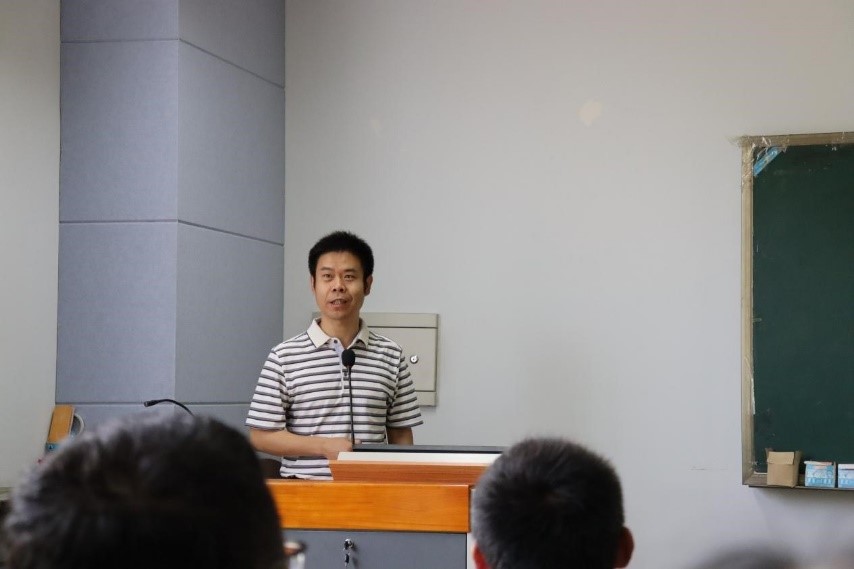
Researcher Liu Xingang gave a special report
Researcher Liu Xingang introduced the research on the environmental impact of pesticides, mainly including the environmental fate of pesticides, the impact of pesticides on microorganisms, the evaluation of biological effectiveness of pesticides, and the prevention and control of pesticide environmental pollution. Researcher Liu Xingang introduced the establishment of a food growth model to study the degradation behavior of pesticides; the study of drug toxicity through the effects of pesticides on bees, zebrafish, etc., and gave a method for evaluating the biological effectiveness of pesticides, providing effective detection measures and measures for human food security. Researcher Liu Xingang's explanation gradually showed the problems in the process of pesticide research and the latest research results in a very clear context. Then he proposed a new direction for the future development of pesticides by crossing with nanomaterials.
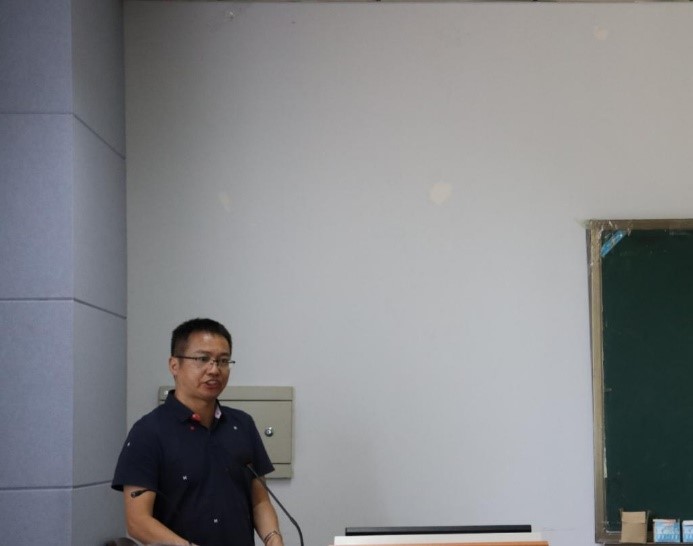
Professor Lin Zhenyu gave a special report
Professor Lin Zhenyu introduced the research and application of visual sensing technology based on the morphology change of gold nanoparticles. With his humorous language, Prof. Lin first showed the subject background to everyone, and then told everyone the theoretical knowledge of the optical properties of nanomaterials, the control surface charge state of nano gold spheres, and the control distance. Then, several detection methods were introduced, such as the visual detection method based on enzyme-induced growth of gold nanorods, the growth of gold nanobipyramid based on ALP regulation, and the multi-color visual detection based on Fenton reaction oxidation etching of gold nanorods. At present, Prof. Lin's team has applied it to the detection of new coronary pneumonia, progesterone and sperm motility, and has produced huge economic benefits.
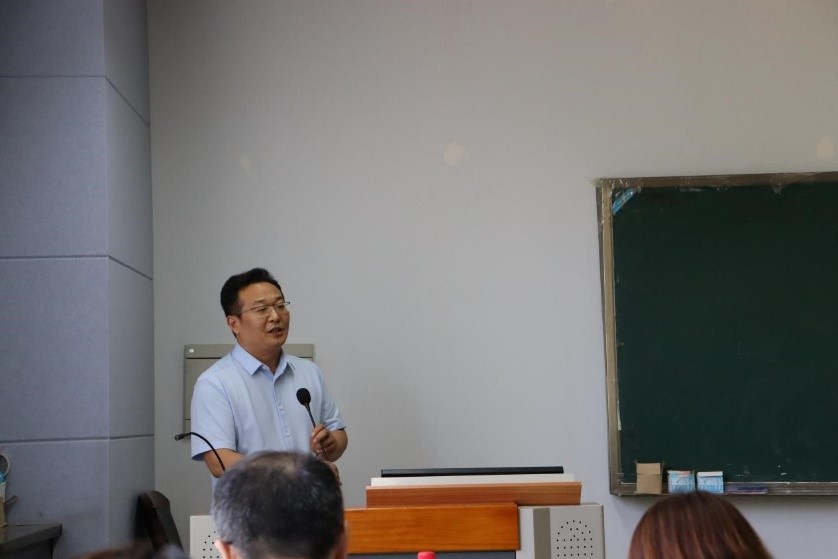
Researcher Wang Peilong gave a special report
Researcher Wang Peilong introduced environmental pollution and food safety, and his main research direction is the detection and evaluation of feed quality and safety. Professor Wang introduced environmental pollution and food safety issues in detail from three aspects: feed toxicology, feed quality and safety analysis basis, and POPs analysis toxicology. In the report, he proposed methods for testing food safety, such as creating efficient sample processing technology. He put forward unique insights on future food safety issues and let everyone understand the seriousness of food safety problems in our country, and also deeply aware of environmental pollution closely related to food safety issues.
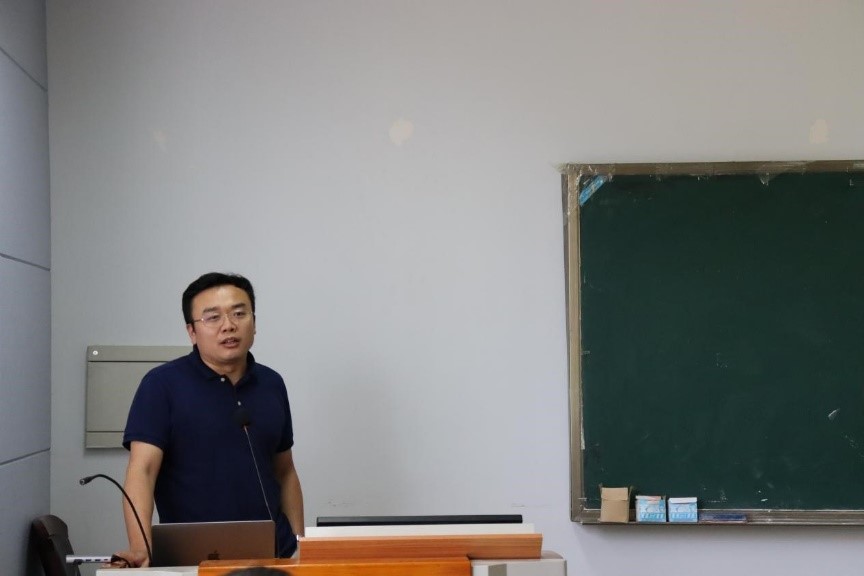
Associate Professor Wang Yuguang made a special report
Associate Professor Wang Yuguang gave a report on "Application of Low Energy Laser Technology in the Oral cavity" and introduced the mechanism of action of low energy laser. He reported that the intracellular photosensitive protein Opsin4 was used as the green light receptor, 520 nm green light passes through the MAPK-EPK channel Mediated the osteogenic differentiation of hBMSCs, and simulated and measured the penetration depth of the optical waveguide in the skin tissue. It was concluded that green light can be transmitted into the bone defect and accelerate the speed of bone defect repair in vivo. In addition, Professor Wang also introduced the related research results of new luminescent implants and green light in the treatment of dentin hypersensitivity.
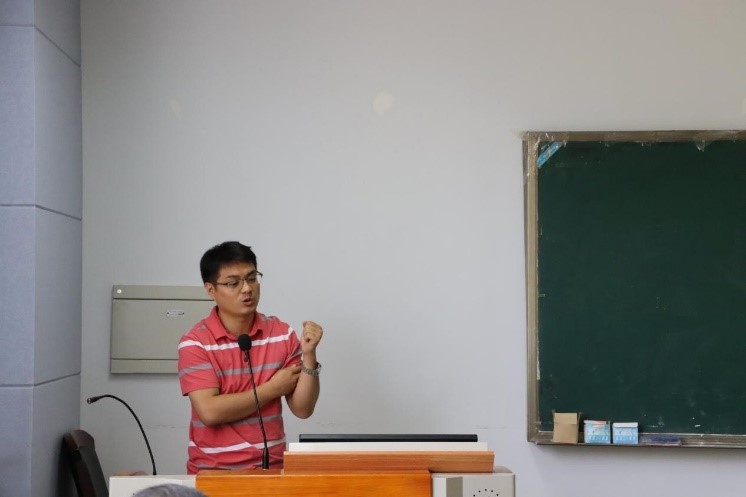
Assistant Researcher Zhang Leicheng gave a special report
Assistant Researcher Zhang Leicheng introduced microfluidics and its research progress and results. He also pointed out the general development direction of microfluidics.

Prof. Wang Tie delivers closing remarks
At the end of the meeting, Professor Wang Tie gave a closing speech and summed up the profound significance of this seminar. He hoped that everyone should work hard on the road of scientific research, make greater contributions to the future development of themselves and the Institute, and also to " The goal of healthy development of human health is to move forward bravely.
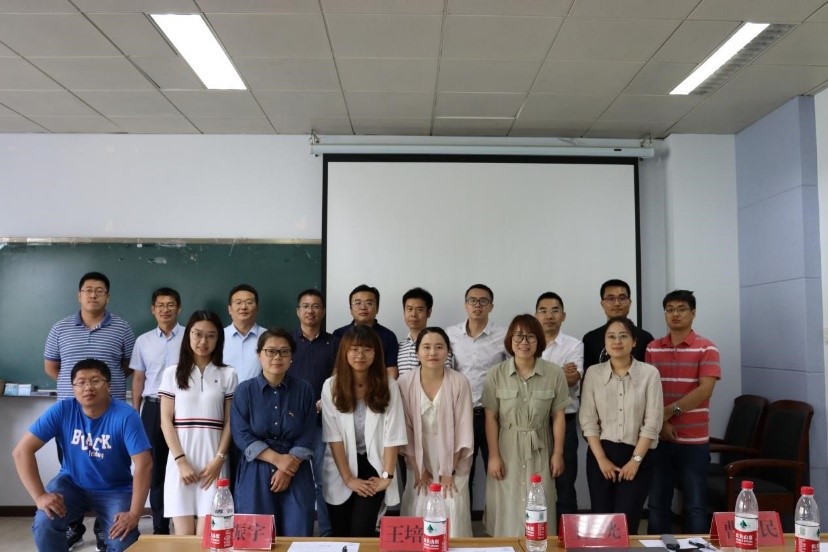
Group photo of participating teachers